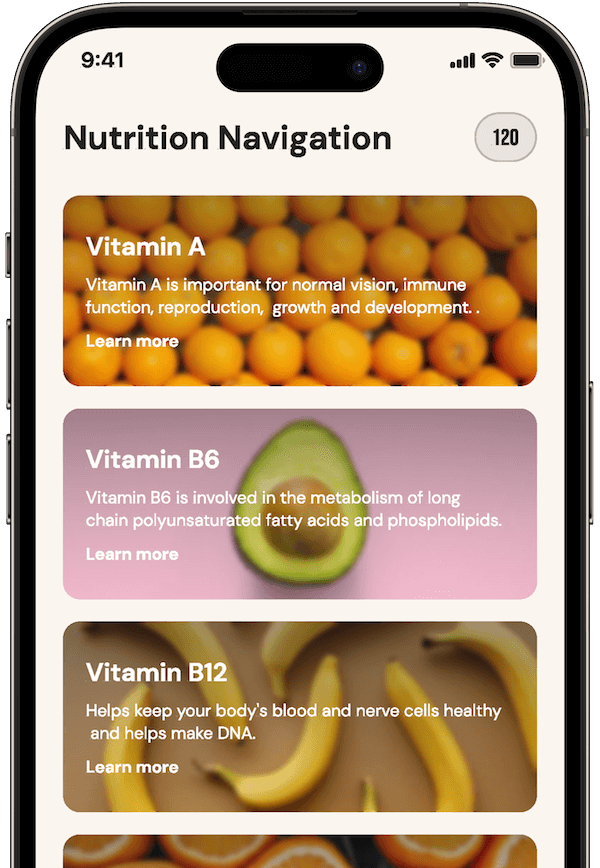When I was first diagnosed with adenomyosis, I felt overwhelmed, confused, and quite honestly, alone. There were days when the pain felt unbearable, and it was hard to explain the emotional toll it was taking on me to others who had never experienced something like this. As someone who has battled this condition and eventually improved my symptoms through nutrition and lifestyle changes, I know firsthand how crucial it is to have access to emotional support and resources.
This journey inspired me to create the Unprocessed App to help women like me track their nutrients, gut health, and overall well-being. In this article, I’ll share insights and practical tips that have helped me, as well as information on coping strategies, mental health resources, and support networks that can make a real difference.
Adenomyosis can have a significant emotional impact, but women can manage this by seeking support through family, friends, support groups, professional therapy, and online communities. Coping strategies such as mindfulness practices, an anti-inflammatory diet, gentle exercises like yoga, and counselling can help alleviate symptoms. Building a strong support system and focusing on mental health are crucial steps toward living with adenomyosis.
What Is Adenomyosis?
Adenomyosis is a condition where the tissue that normally lines the uterus starts to grow into its muscular wall. This can lead to symptoms like heavy or prolonged periods, severe cramping, chronic pelvic pain, and bloating. For many women, these physical challenges are accompanied by emotional strain, as the condition can impact daily life, relationships, and mental well-being. While the exact cause of adenomyosis isn’t fully understood, managing it often involves a combination of medical treatment, lifestyle adjustments, and emotional support.
Understanding the Emotional Impact of Adenomyosis

Adenomyosis doesn’t just affect your body—it can have a profound impact on your emotional and mental well-being. Chronic pain and hormonal changes take their toll, often leaving you feeling isolated, frustrated, or overwhelmed. Recognizing the emotional challenges of living with adenomyosis is an important first step in finding support and coping effectively.
Here are some common emotional challenges women with adenomyosis face:
- Chronic Pain and Exhaustion: Constant or recurring pain can sap your energy and make it hard to enjoy daily activities or spend time with loved ones.
- Mood Swings and Hormonal Changes: Hormonal imbalances may intensify feelings of anxiety, irritability, or sadness.
- Feeling Misunderstood or Isolated: It’s not always easy to explain your symptoms to others, and their lack of understanding can make you feel alone.
- Loss of Control: Unpredictable symptoms may leave you feeling like your condition dictates your life, making it hard to plan ahead. This may affect different areas of your life, including your professional life and relationship with others.
- Impact on Self-Identity: Adjusting to a “new normal” with adenomyosis can sometimes feel like losing a part of yourself, especially if it affects your goals or routines.
These challenges are valid, but there are ways to manage them. Whether it’s reaching out for emotional support, building a strong network of understanding people, or finding practical tools to help, you don’t have to face this alone.
Coping Strategies for Managing Adenomyosis
Managing adenomyosis isn’t just about physical treatment—it’s about finding ways to care for your emotional well-being, too. While support from others is vital, there’s also power in the small, daily steps you can take to care for yourself.
Here are a few strategies to help you cope and regain a sense of balance:
- Try Mindfulness Practices: Techniques like meditation, deep breathing, or yoga can help ease stress and bring moments of calm into your day.
- Explore Journaling: Writing down your thoughts or tracking your symptoms can provide clarity and emotional relief. It’s also a helpful way to identify triggers or patterns in your condition.
- Prioritise Gentle Movement: Activities like stretching, walking, or low-impact exercises can help reduce tension and improve mood without overexertion.
- Focus on an Anti-Inflammatory Diet: Incorporating foods like leafy greens, nuts, seeds, and fatty fish as well as nutritional supplements may help reduce inflammation and support your overall well-being.
Taking time for yourself and experimenting with these strategies can make a meaningful difference in managing the challenges of adenomyosis. The Unprocessed App offers an easy way to track your symptoms and your diet, helping you identify foods that trigger symptoms and stay on top of your nutritional needs
Join the waitlist and begin your journey to healing with a plan tailor-made to help you manage your symptoms of adenomyosis. As a certified nutrition coach, I’ve seen how impactful diet changes can be in managing adenomyosis and improving overall health.
Building a Strong Support System When You Have Adenomyosis

Navigating adenomyosis can feel overwhelming, but having a solid support system can make all the difference. Connecting with others who understand your journey, leaning on loved ones, and seeking professional guidance can help you feel less isolated and more empowered.
Online Communities and Support Groups
Online platforms and communities create a safe space to connect with people who truly understand what you’re going through. Whether it’s sharing experiences, swapping tips, or simply venting, these communities offer invaluable encouragement and a sense of belonging. Personally, joining these groups helped me feel less alone and more equipped to manage my symptoms.
Support from Loved Ones
Family, friends, and partners can provide meaningful support when they understand your needs. Whether it’s through patience, listening, or simple acts of kindness, their care can make the tough days feel more manageable. Be open and honest about your experiences and don’t hesitate to ask for help when you need it.
Professional Counseling
Therapy can be an incredible resource for navigating the emotional toll of adenomyosis. A professional counselor can help you develop coping strategies, manage chronic pain, and build resilience. Seeking therapy isn’t a sign of weakness—it’s a powerful step toward reclaiming control over your well-being.
By combining the support of online communities, loved ones, and professional counseling, you can create a strong foundation to manage the emotional challenges of adenomyosis.
FAQ
Can adenomyosis affect fertility even after menopause?
While adenomyosis primarily impacts fertility during reproductive years, post-menopausal adenomyosis can still cause complications, such as chronic pelvic pain or uterine issues, which may indirectly affect overall health.
How can I explain adenomyosis to someone who doesn’t understand it?
Adenomyosis can be described as a condition where uterine lining tissue grows into the uterine muscle, causing pain, bloating, and heavy periods. Use analogies, like comparing it to invasive roots damaging a structure, to help others understand.
Does stress worsen adenomyosis symptoms?
Yes, chronic stress can exacerbate hormonal imbalances and inflammation, both of which are linked to worsening adenomyosis symptoms. Mindfulness practices and stress management are vital in managing the condition.
Can adenomyosis lead to depression or anxiety?
The chronic pain and hormonal changes associated with adenomyosis can contribute to mental health challenges like anxiety or depression. Seeking professional counseling and building a strong support network can help mitigate these effects.
Closing Thoughts

Living with adenomyosis can feel overwhelming, but having the right support and resources makes it more manageable. As someone who’s experienced this journey, I designed the Unprocessed App to help you track your diet, gut health, and overall well-being. Be one of the first to experience personalized guidance and resources that can help you achieve better health and a more balanced life. Join our waitlist today and start taking control of your well-being.



